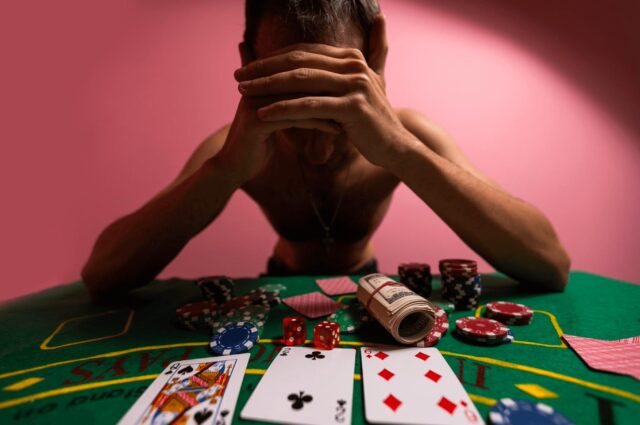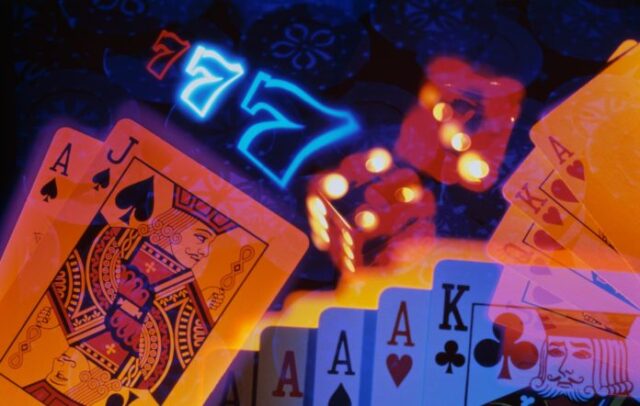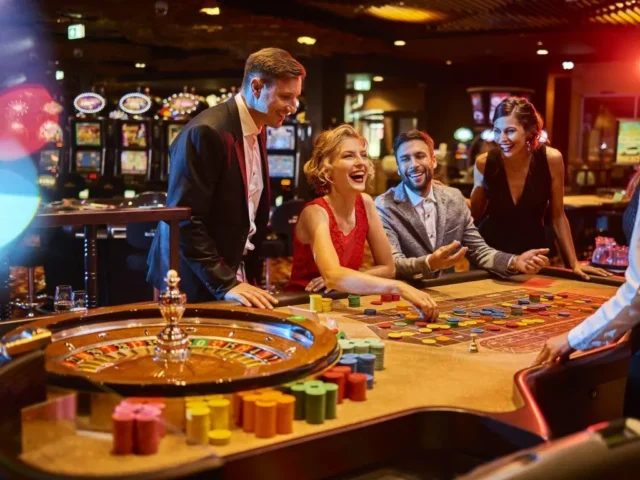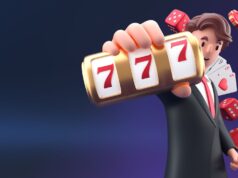
When you think of gaming and gambling, you might picture two entirely different worlds. On one hand, you have video games, where players embark on epic quests, build empires, or simply match colorful blocks.
On the other hand, you have gambling, a world of spinning roulette wheels, flashing slot machines, and high-stakes poker games. However, these two seemingly separate activities have more in common than you might think. In fact, many gamers possess the skills and mindset that make them natural gamblers.
The Thrill of Risk-Taking

One of the most obvious connections between gaming and gambling is the thrill of taking risks. Gamers are accustomed to making decisions that could lead to victory or defeat. Whether it’s choosing to engage in a high-stakes battle or deciding to push forward despite low health, gamers constantly assess risk and reward.
Gambling operates on a similar principle. The decision to place a bet, spin a wheel, or hold your cards in a game of poker is all about weighing the potential reward against the risk. The thrill of possibly winning big, coupled with the danger of losing, creates an adrenaline rush that both gamers and gamblers find hard to resist, especially when discovering a hidden paradise like Shangri La.
Moreover, many video games incorporate elements of chance, such as loot boxes or randomized rewards, which closely mimic gambling mechanics. Gamers who are used to taking these risks in virtual worlds may find it easier to transition to gambling, where similar decision-making processes are at play.
Strategic Thinking and Problem-Solving
Gamers are often required to think strategically, plan their moves, and solve complex problems to succeed. These skills are not only essential in games but also in gambling, especially in games that require more than just luck, such as poker, blackjack, or sports betting.
In strategy games, players must anticipate their opponents’ moves, manage resources, and develop long-term plans to achieve their goals. This kind of thinking is directly applicable to gambling. In poker, for example, players need to read their opponents, calculate odds, and make decisions based on incomplete information. The ability to think several steps ahead, common among seasoned gamers, can give them a significant advantage at the gambling table.
Even in games of chance, like roulette or slot machines, there is often an element of strategy in deciding how much to bet and when to stop. Gamers’ natural inclination to analyze situations and adapt their strategies can make them more successful gamblers.
Mastery of Hand-Eye Coordination and Reaction Time

Video games often require quick reflexes and precise hand-eye coordination, especially in fast-paced genres like first-person shooters or racing games. These physical skills also play a role in certain forms of gambling, particularly in live settings or games that require rapid decision-making.
For example, in live poker or blackjack, players need to quickly assess their cards, make decisions, and react to other players’ actions. Gamers who are used to the fast-paced nature of video games may find that their honed reflexes and coordination translate well to these situations.
Additionally, the ability to stay calm under pressure, another trait common among gamers, is crucial in gambling. Whether you’re playing a competitive video game or sitting at a poker table, the ability to maintain focus and make sound decisions in high-pressure environments can be the difference between winning and losing.
The Pursuit of Mastery and Continuous Improvement
One of the defining characteristics of gamers is their desire to improve and master their chosen games. This drive for self-improvement is also a key aspect of successful gambling. In both gaming and gambling, players often study strategies, analyze their performance, and seek out ways to enhance their skills.
Gamers are used to dedicating time and effort to perfecting their techniques, whether it’s learning advanced combos in a fighting game or refining their build in a strategy game. This same dedication can be applied to gambling. Many successful gamblers spend hours studying odds, learning the intricacies of different games, and refining their betting strategies.
The concept of “leveling up” in gaming also parallels the way gamblers often approach their craft. Just as gamers aim to progress through levels and unlock new abilities, gamblers work to improve their understanding of the games they play and increase their chances of winning over time.
Resilience and Learning from Failure
Failure is a common experience in both gaming and gambling. Gamers are no strangers to losing battles, failing missions, or making costly mistakes. However, what sets successful gamers apart is their resilience—the ability to learn from failure, adapt, and try again.
This resilience is equally important in gambling. No gambler wins every time, and losses are an inevitable part of the experience. What matters is how a gambler responds to these losses. Gamers who have developed a mindset of learning from their mistakes and persevering through challenges are often better equipped to handle the ups and downs of gambling.
Moreover, the ability to analyze what went wrong, make adjustments, and come back stronger is a skill that serves both gamers and gamblers well. Whether it’s tweaking a strategy in a video game or adjusting a betting system in poker, the willingness to learn and improve is key to long-term success.
Community and Social Interaction

Both gaming and gambling have strong social components. Many gamers participate in multiplayer games, where teamwork, communication, and competition are essential. Similarly, gambling, especially in live settings like poker or blackjack, often involves interacting with other players, reading social cues, and building rapport.
Gamers who thrive in team-based environments or enjoy the social aspects of online gaming may find the transition to gambling, where social interaction is often a key element, to be a natural one. The ability to read people, anticipate their actions, and engage in friendly competition is valuable in both worlds.
Conclusion
The skills, mindset, and experiences that gamers develop through their favorite hobby often translate seamlessly into the world of gambling.
However, it’s important to recognize that while the transition from gaming to gambling may seem natural, it also comes with its own set of challenges and risks.









